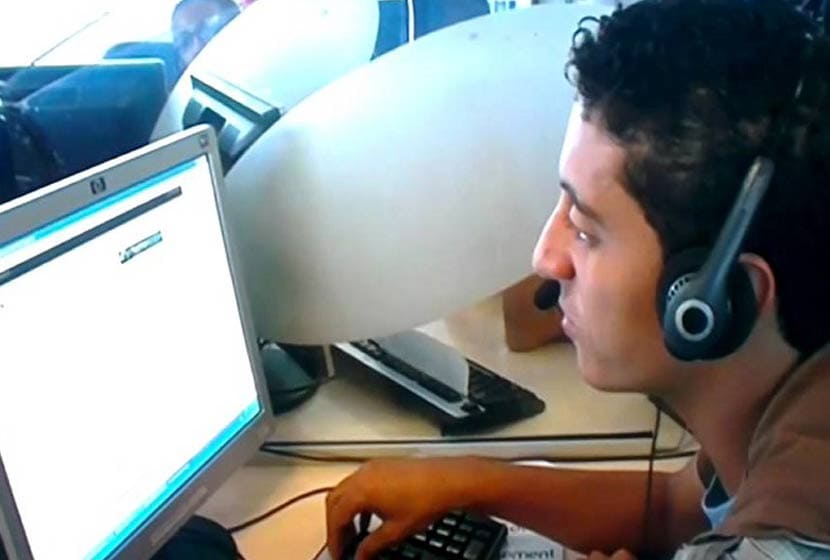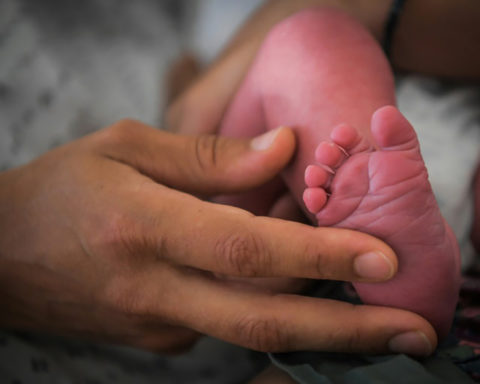"In a context of taboo concerning certain pathologies, particularly those related to sexuality, the remote assistance relationship devices are confidential spaces of speech and free of any type of judgment.says Pedro Garcia, who is in charge of international actions at SIS-Network, in an article published by the UNDP Blog Blog Humanun.
Taking the Latin American situation as an example, he demonstrates that the By taking advantage of new technologies such as the Internet, SMS, smart phones and various social networks, "hotlines" are relevant tools for reaching different population groups at risk and responding in a personalized way and without judgment or discrimination. »
In the second half of the 1990s, there were 3.3 million new HIV cases worldwide each year. Activists at the time denounced the inadequate state responses to the epidemic. Thus, civil society initiatives arose to provide support to every person affected by the virus and to inform them about the fears, doubts and uncertainties associated with the disease. Several countries have seen the emergence of remote assistance relationship systems (RAD) through the setting up of telephone lines dedicated to the support and guidance of users. These systems ensured the right to information and for the health of all, in an anonymous, confidential, free and non-judgemental manner.
Today, access to information continues to be a barrier in the fight against HIV/AIDS in Latin America and the Caribbean, as several statistics show. According to ECLAC figures in 2007, fewer than 20 % of Peruvian women between the ages of 15 and 24 had adequate knowledge about HIV. The table below shows similar conditions in other countries in the Latin American region.

Latin America is the world leader in cellular telephony. 98 % of the population lives in a mobile coverage area and 84 % of households have subscribed to a telephone service. Despite the development of new technologies for social telephony, the level of disinformation persists. Through better targeting, the use of technology should enable all populations to access reliable and free information.
Information tailored to the general population and key groups
In a context of taboo concerning certain pathologies, particularly those related to sexuality, the remote assistance relationship devices are confidential spaces of speech and free of any type of judgment. In their ideal form, they offer the user quality information transmitted by trained listeners and moderators on an ongoing basis. The Argentinean Pregunte SIDA line, for example, is staffed by counsellors trained to answer questions about transgender people or sex workers, two groups disproportionately affected by the HIV epidemic. In Bolivia, Marie Stopes International's line responds primarily to a young audience on issues related to sexuality, prevention and contraception. The Venezuelan line, set up by Acción Solidaria, provides support and specific guidance to people living with HIV.
Anonymity and distance are two of the essential characteristics of listening devices, taking into account the exclusion of groups most at risk for HIV: MSM (men who have sex with men), sex workers and their clients, and drug users. The various Amerindian and Afro-descendant groups may also be populations particularly concerned by a lack of information or misinformation about sexual health.
The HIV prevalence rate in Latin America is close to 0.4 % for the general population. Yet studies report that prevalence among MSM ranges from 7.9 % in El Salvador to 25 % in Mexico. It is 27.6 % in Argentina among transgender persons and 9.6 % among sex workers (SWs) in Honduras. Among drug users, prevalence is estimated at 9.1 % in Paraguay. At the same time, the risk of further expansion of HIV among women and young people remains in the region.
By appropriating new technologies such as the Internet, SMS, smart phones and various social networks, hotlines are relevant tools to reach different population groups at risk and to respond in a personalised way and without judgement or discrimination.
Complementary devices to health care systems
The development of technologies allows a significant amount of work to be done in collecting data on subjects that are often taboo and difficult to approach "face to face". By filling in a computerised form during anonymous exchanges, it is possible to identify the most frequent queries from users in real time. This identification makes it possible to better orient information campaigns and sexual health policies. Some Latin American governments have set up national HIV/AIDS systems: for example Telsida in Mexico, Pregunte SIDA in Argentina and Fonosida in Chile.
The remote assistance relationship is adaptable to respond to other public health issues, such as health emergencies. In Uruguay, following the decriminalisation of abortion in 2012, the AIDS, sexuality and reproductive health line, coordinated by theASEPO AssociationThe National Women's Committee, was a means of supporting and informing women about the new law.
Forecasts for 2017 envisage a Latin American mobile health market of $1,600 million. It is important that this growth involves all population groups with a horizontal focus on information, health and care. Through the remote help relationship it is, above all, a question of giving listening and voice to those who need it most.
Pedro García (http://www.revistahumanum.org/blog/vih-salud-y-tecnologia-a-la-escucha-de-las-poblaciones/) /31 October 2014
Translation: Carlos Yuguero
Pedro García is in charge of international actions at SIS-Réseau. He participates in advocacy and in the implementation of Distance Support Relationship mechanisms in West and Central Africa for the promotion of health and information concerning HIV and sexual and reproductive health. Before joining SIS-Network, Pedro was a research assistant at the Latin American Regional Office of the United Nations Development Programme (UNDP). Pedro received his bachelor's and master's degrees from the Institut d'Études Politiques de Paris (Sciences Po Paris), with a specialization in Latin American studies. He is interested in social protection and inclusion issues, anti-discrimination struggles and social movements. He studied at the University of Chicago and the National University of Mexico (UNAM).












